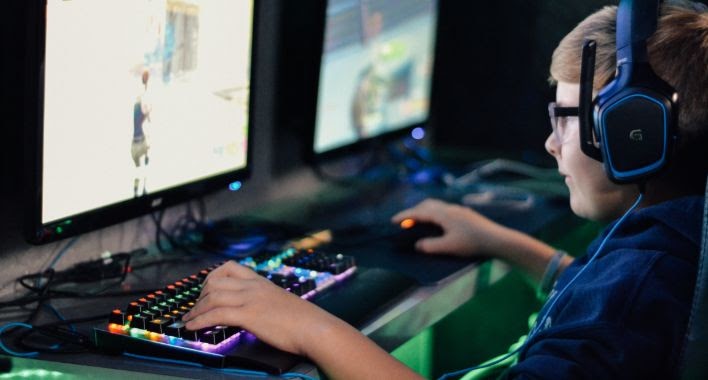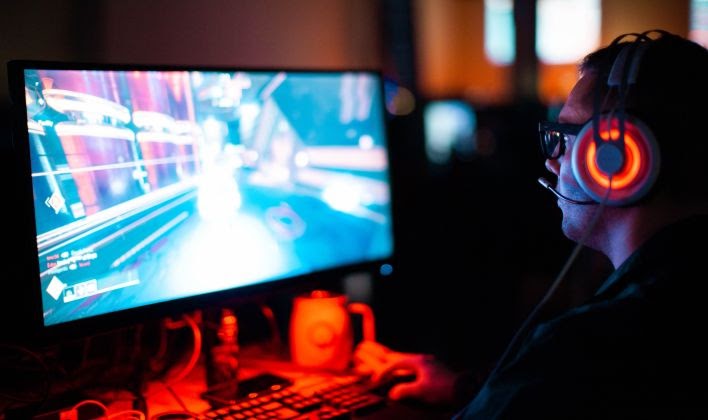Although it may go unnoticed at first, the psychology of esports exists and it is a good thing to foster it.
For several years we have been witnessing the rise of esports, also called eSports or eGames. That is the world of sports competition through video games. There is still a strong debate as to whether this type of activity should be considered a sport and whether, therefore, players who practice it should approach their training in the same way as any other athlete, especially a high-performance athlete.
In any case, it is an activity that is done by millions of followers around the world in increasingly popular events and, at the same time, it is integrating in an increasingly structured way the figure of the sports psychologist in the work with egamer teams.
These professionals apply to esports what they know about the psychology of sports and, given the novelty of this activity, they are gradually expanding the field of learning in this regard.
Psychology of esports: improving egamers’ performance
There are no magic formulas to achieve resounding success in any sport. Normally the emphasis is placed on an effective combination of work and talent, that is, on perseverance and efficiency when it comes to developing one’s skills.
However, while this work is being carried out, if we want to focus on the psychology of esports properly, we must focus on five guidelines that, as in other sports, can favor performance in the field of esports.

1. Set realistic objectives
It is a basic requirement when we undertake any project: realistic, concrete, and timely objectives. Esports players must develop the ability to set goals that are ambitious enough to be worthwhile, but achievable enough to have a real chance of reaching them.
As you know, an esports career is not a one-day thing but is built progressively over time. For this reason, egamers should consider what they want to achieve in the short, medium, and long term. In other words, they must think about where they want to be at each point in their career and what peaks they intend to reach in order to set secondary goals according to that timeframe.
2. Understanding one’s talents
Within the same discipline, there are different areas in which each athlete can excel to a greater or lesser extent. If there is something we know about the relationship between psychology and esports is that a player must have a good level of self-knowledge.
This includes knowing what positions, skills, movements, types of play, etc. are better than others, to focus their training there, instead of unnecessarily spending resources in areas in which, clearly, they have less room for improvement. This does not mean that an athlete has to be satisfied only with what they do well and neglect what they are less good at, but that they need to distribute their efforts optimizing their resources.
3. Diversify training techniques
Those who practice esports should be creative, research their discipline and, in addition to relying on methods that have proven to be effective, not settle for just those. To improve their training, it is important to look for ways to take advantage of other activities, even if they seemingly have nothing to do with the sport in which they are trying to improve.
Obviously, you should focus on the characteristics of the game in question, but who knows how much other exercises can also contribute: reading, taking a walk, watching a movie, learning meditation and relaxation techniques, exercising memory and calculation, drawing, DIY, etc.
4. Search for inspirational references
Anyone who wants to excel in an activity, especially at the beginning, should look for inspiration in those who paved the way for them. When we talk about the psychology of esports, we also mean those who practice these activities should think about who they want to be like.
It is not just a matter of wallowing by contemplating idols, as if they were unattainable horizons to be admired. Instead, it is good to spot those who do things well and what techniques and methods have enabled them to reach their level of proficiency.
Once identified, the idea is to emulate them. We should not simply imitate these references, automatically repeating what they did, but behave like them in order to reach their level of performance and even surpass it.
5. Develop other passions and hobbies
Traditionally, one is tempted to think that in order to excel in a discipline, for example in a sport, a person has to devote their mind, body, and soul to it 24 hours a day. However, with the psychology of esports, we can actually manage an alternative approach.
Having another activity, another passion, or powerful area of knowledge in parallel can be an interesting counterpoint and also nourishment for the practice of sport. Whether it is an area related to sport or has nothing to do with it, this other activity can be an important source of training for the sport in question if the person knows how to find the right bridges between both disciplines.
In addition to helping unwind and clear the mind so that one is not under too much pressure from a single activity, having another “career” helps to sharpen skills and knowledge that can be very beneficial on the day of the big game.
Mental skills developed in sport
As in other activities with a strong competitive or sporting character, egames or esports can also contribute to the development of different cognitive skills that are beneficial to excel in them and can be generalized to other aspects of life. Some of them would be concentration (sustained attention), decision making, problem-solving, impulse control, and planning.

The psychology of esports: the less friendly face
Stress, frustration, and tilt. These three phenomena allow us to understand the psychology of esports and are unavoidable when practicing any sport, especially in the context of high performance. They can also be the result of poorly set objectives or poorly designed strategies.
1. Esport and stress
Stress is the psychological experience of perceiving the tasks to solve exceed our resources. At certain levels it is perfectly manageable, but if it is too high or long-lasting it can overwhelm us. When that happens, stress prevents us from thinking clearly and causes our motivation levels to solve the task to drop drastically, which would end up “burning out” the athlete.
2. Esport and frustration
Frustration is what we feel when the results we get are worse than we expected or do not meet the standards for which we had striven.
To counteract it, a good athlete must interpret defeats properly: we must turn them into something useful, not into defeatism. In this sense, it is worth remembering that, when setting goals, excessive ambition, disconnected from reality, is not a good way to succeed, that is to say, to obtain the desired results.
This is what is often said about unchecked force: it leads to nothing. If expectations were too high, lower them and start again. If it was the method that failed, then you have to look for a more suitable one and try again.
Strength, i.e. talent, must have adequate channels through which to express itself. Ambition is one of those channels, but control, which has to do with restraint, patience, and precision, is another. There is also self-knowledge, awareness of my qualities but also of my limitations.
If I only use the channel of ambition, I will use my talent in an inefficient and improvised way, as well as poorly integrated into the whole person that I am, the athlete that I am. I may still get what I want under the right circumstances, but it is more likely that this will not happen and then I will have to deal with frustration.
3. Tilt applied to esports
Tilt is an English term often used in the field of the psychology of esports and video games in general. It has to do with the idea of “emotional decline” associated with the lack of success when we repeat the same activity.
More specifically, it is the emotion experienced when we find that by doing the same thing over and over again we do not achieve positive results, but rather negative ones, and this causes us discomfort and frustration.
In this sense, it is advisable to analyze what is happening and why in this case doing the same thing continuously does not generate greater skill but the same negative result. It is also necessary to properly schedule rest periods to counteract fatigue and remember that behaviors always executed in the same way tend to always produce the same results, so we should not expect changes in these if we do not modify what we do.
Working and caring for our wellbeing
Achieving the best possible performance with a minimum of psychological strain is not easy, but it can be achieved when we put ourselves in the hands of professionals. Ifeel has a large team of psychologists with whom you can carry out your process of personal therapy or the development of your professional skills, which will help you progress in your practice of esports.
It also has an emotional well-being program for companies, designed by its team of expert psychologists with the aim of helping companies to place the care of the psychological well-being of their employees at the center of their corporate culture, as a fundamental tool to enhance performance in a sustainable way.
We hope you found this post about the psychology of esports interesting. If you would like more information about our emotional wellbeing program for companies, simply request it and we will contact your team as soon as possible.










